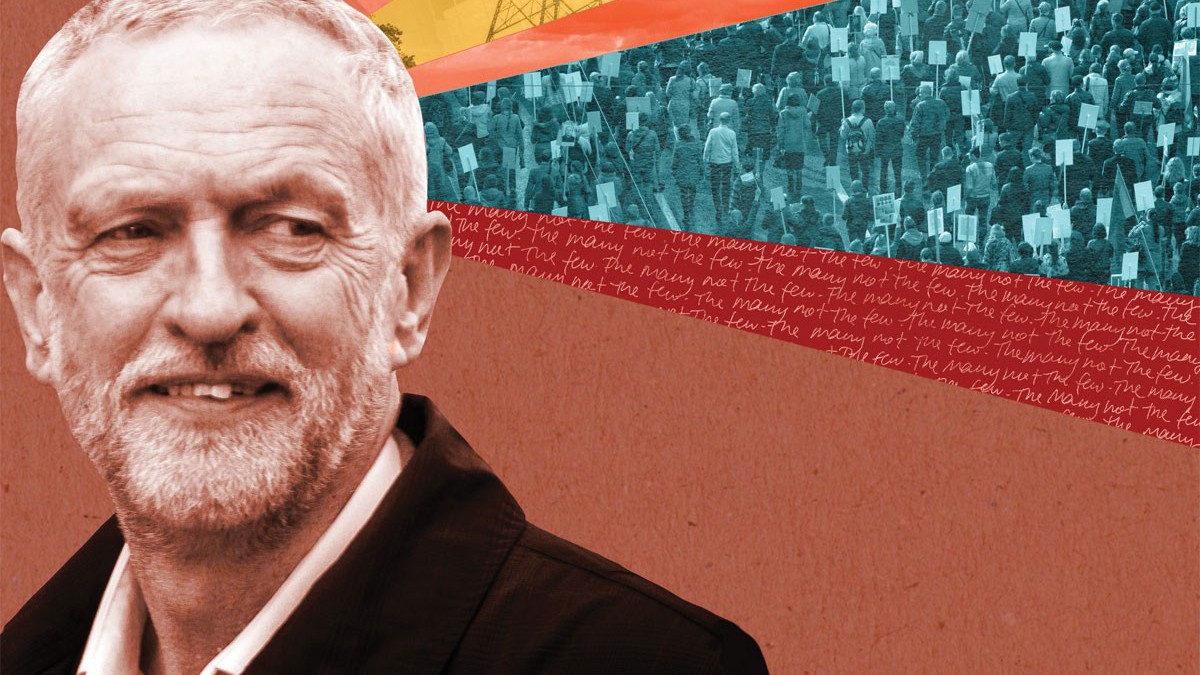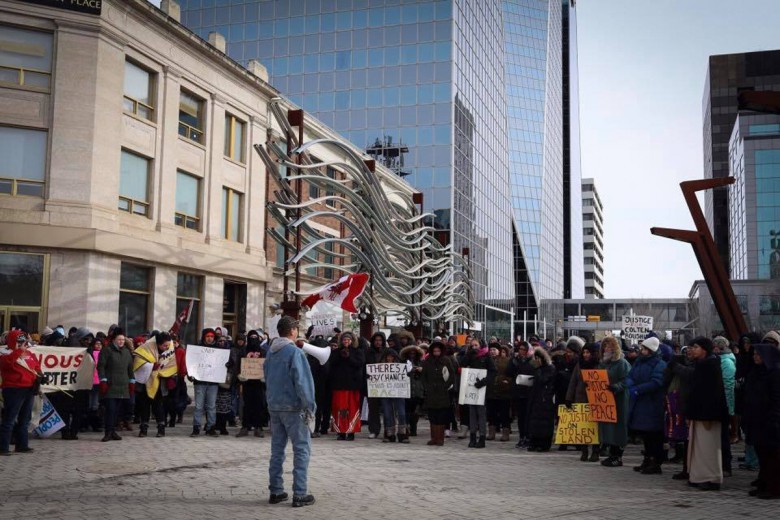“You really don’t have to worry about Jeremy Corbyn suddenly taking over [the Labour Party],” Tony Blair told a journalist in 1996. Nineteen years later, that same member of Parliament for Islington North in London was elected Labour Party leader with the largest popular mandate in British political history – more than his three challengers combined. Then two years after his shock victory in 2015 and another leadership election, Corbyn led one of the greatest electoral comebacks in British electoral history. Blair’s offhand comment from 1996 encapsulates how much both the Labour Party and British politics have changed. Above all, the changes are a testament to how far Blair’s brand of politics has declined in power and importance.
With the decline of Blairism – the political expression of Labour’s accommodation of Margaret Thatcher’s neoliberal policies in the 1980s – has come the increasingly confident assertion of a 21st-century socialist alternative. As John McDonnell, Labour’s shadow chancellor, said at the 2016 Labour Party conference: “In this party you no longer have to whisper it – it’s called socialism.” Campaigning on the most radical electoral program in decades against a hostile press, after years of undermining and sabotage from his own MPs, Corbyn’s Labour achieved a higher percentage of the vote than Blair received in 2005. Only weeks before the election, the Conservatives were a full 20 points clear of Labour. Corbyn went from a -42 personal approval rating in late April 2017 to -14 on the eve of the election on June 8. A week after the election, it had risen by 42 points. Theresa May’s ratings have fallen from +10 to -34 in the same period. Corbyn and his vision are now more secure than ever at the heart of the largest political party in western Europe. His critics, Blair included, have been forced to eat humble pie.
It is hard to overstate the break that Corbyn’s leadership has made with the past.
It is hard to overstate the break that Corbyn’s leadership has made with the past. Corbyn rebelled against the Labour Party whip (the quasi-mandatory obligation for the party’s MPs to vote with the government) on 428 occasions. Many of these rebellions were over questions of foreign policy, war, and militarism. Traditionally, Labour leaders have been unapologetically Atlanticist, pro-NATO, and active or passive enemies of anti-colonial struggles. Harold Wilson famously refused to condemn the U.S. war in Vietnam, while Labour governments conducted colonial wars in Malaya, Kenya, British Guiana, and Yemen. Corbyn, unlike previous Labour leaders, comes from a different and minority strand in the Labour Party – one of socialist internationalism and solidarity. Corbyn famously fought his own party from the backbenches over the Iraq War, without thought to furthering his own career. Corbyn was chair of the Stop the War Coalition, and has been a vocal and active proponent of solidarity with the Palestinian struggle. From supporting anti-colonial movements across the world, opposing war and militarism at home, to playing a leading role in anti-Apartheid solidarity, Corbyn diverges significantly from Labour leaders of the past.
Most importantly, Corbyn has not distinguished between fighting for socialist ideals at home and abroad. This is what the British establishment fears most – so much so that one senior general warned of a possible “mutiny” of the armed forces under Corbyn. “The general staff,” the anonymous general told the Sunday Times, “would not allow a prime minister to jeopardise the security of this country and I think people would use whatever means possible, fair or foul to prevent that.” Given Britain’s historic role as a colonial power, Corbyn’s lifelong commitment to peace and internationalist socialism is seen as an existential threat.
Corbyn has been undermined at every conceivable opportunity by a Labour Party establishment loyal to the old politics of the Blair years. For leading figures like Peter Mandelson, Tristram Hunt, Yvette Cooper, and Chuka Umunna, Corbyn was an imposter. Mandelson claimed that he tried (and tries) to undermine his leadership “every day.” “The Labour party is in danger more mortal today than at any point in the over 100 years of its existence,” Blair wrote. Undermining has often manifested in open sabotage. There were a series of mass shadow cabinet resignations, votes of no confidence, and damaging leaks by staff and MPs to the press. MPs even went so far as to call a second leadership election during the summer of 2016, triggered by a vote of no confidence. Corbyn was allowed to appear on the ballot largely through a legal campaign fought against attempts by senior Labour figures to exclude him. Corbyn won the second leadership election convincingly, with nearly 62 per cent of the vote, an increased majority against his challenger, Owen Smith. Some in the old party establishment still have not been able to reconcile Corbyn’s two overwhelming mandates. Only weeks before the general election, Labour MP Wes Streeting claimed that Corbyn couldn’t become prime minister. Corbyn was expunged from many MPs’ election campaign literature. The election result on June 8, 2017 was won despite the actions of the parliamentary Labour Party, not because of them. The great irony of the general election result is that the parliamentary careers of MPs who have done their utmost to scupper the project have been sustained by the selfless activism of hundreds of thousands of Labour activists enthused by the party’s socialist program and Corbyn’s leadership. This contradiction will persist in the coming years.
MPs even went so far as to call a second leadership election during the summer of 2016, triggered by a vote of no confidence.
The electoral success of Corbyn and the Labour Party is all the more impressive when compared to the general crisis of European social democracy. European social democrats have been complicit in the hegemony of neoliberal politics for 30 years. Corbyn’s unique success is the outcome of his party’s break with the old politics of capitalist realism and the reassertion of socialism as a realizable horizon. The French Socialist party faced a crushing defeat in this year’s presidential elections, where it won only about seven per cent in the first round. Meanwhile an unapologetic leftist outside the party, Jean-Luc Mélenchon was only 1.72 percentage points behind Marine Le Pen in the first round of voting and was close to ousting her as the second-round contender against Emmanuel Macron. On a slumped turnout, Macron’s victory in the French presidential race shows that the neoliberal centre can still win – but it can’t enthuse voters. The Dutch Labour Party has faced a series of declining fortunes. The Socialist Workers’ Party has been eclipsed by Podemos as Spain’s left opposition. In Greece, PASOK regularly received around 45 per cent of the vote but gained less than five per cent in January 2015. The Syriza government in Greece has experienced a serious fall in the polls over the last year. The vote of social democratic parties has fallen by a third to the lowest level in 70 years. Against this backdrop of generalized crisis, Corbyn’s Labour has bucked the trend. In March 2017, the party’s membership stood at 517,000, making it the largest political party in western Europe. The party membership increased by 35,000 since the June 8 general election was called. Like Bernie Sanders – who has given support to the Corbyn project – a new and radical electoral shift is emerging on both sides of the Atlantic. Corbyn’s Labour Party is the most developed and successful of the new left insurgents. The incongruity between a generalized state of crisis among the traditional parties of the European left and Labour’s unexpected triumph on June 8 makes Corbyn’s project even more extraordinary.
The shock electoral success of Corbyn’s Labour did not emerge from nowhere. Social movements since 2010 have contributed to a rapid shift in popular attitudes about establishment politics and the austerity consensus. U.K. students revolted in 2010 against the tripling of tuition fees; trade unionists organized a mass public-sector strike in November 2011; organizations like U.K. Uncut organized “flash mob” tactics to bring the issue of corporate tax avoidance onto the political agenda; housing campaigners have organized rent strikes; major anti-war demonstrations against U.K. interventions in the Middle East and North Africa shifted government policy; an unprecedented number of demonstrators marched in London to show solidarity with Palestinians under attack in Gaza in 2014. Although these social movements were not able to shift the balance in British politics on their own, they shaped the consciousness of hundreds of thousands of people. Corbyn has benefited from the groundwork laid by these movements and the arguments they have started in British national life. Many of the activists involved have played leading roles in the Corbyn project.
The shock electoral success of Corbyn’s Labour did not emerge from nowhere. Social movements since 2010 have contributed to a rapid shift in popular attitudes about establishment politics and the austerity consensus.
The debt that the current Labour Party owes to these campaigns is best encapsulated by the 2010 student movement. Alongside McDonnell, Corbyn fought the introduction of fees in 1998 and 2004 by voting against his own party’s government. Corbyn supported the students inside and outside parliament in 2010 when the Conservative and Liberal Democrat coalition government chose to triple tuition fees in the largest single increase anywhere in the world. In 2010 Theresa May was home secretary and oversaw the student protesters’ brutal repression by the police. Labour’s new policy of abolishing tuition fees and restoring college grants should be understood as a product of this history. Given this past, it is no surprise that some polling companies have calculated that two-thirds of young people voted Labour in the recent general election. Social movements since the 2008 financial crisis have unsettled the hegemony of austerity politics and pointed to alternative ways of organizing society. Corbyn’s electoral comeback built on the groundwork laid by these movements.
Labour’s message of fundamental reform “for the many, not the few” was able to gain traction among sections of the population that journalists (and some Labour politicians) had thought to be permanently lost. Matthew Goodwin, professor of politics at Kent University, said that he would eat his 2013 book on Brexit if Labour polled more than 38 per cent. Goodwin had co-authored Revolt on the Right, which explored the rise of the far right (and especially the U.K. Independence Party [UKIP]) in British politics. In the book he explains how the “white working class” in Labour’s old industrial heartlands was increasingly being drawn toward UKIP. As deindustrialization forced a decline in the number of traditional working-class voters, the authors of Revolt on the Right argued that the “median voter” chased by New Labour had supposedly created a large group of those “left behind” by economic and especially cultural liberalism.
Corbyn’s unexpected success on June 8 across both the metropolitan seats, with large student and migrant populations, and the northern industrial heartlands has decisively rebutted this argument. Labour picked up votes from former UKIP supporters in the north of England and was able to increase turnout by voters who had felt disillusioned and disenfranchised under the Blair governments. Most importantly, Labour was able to attract those who voted for Brexit and those who voted against, uniting both in a new anti-establishment political subject: “the many.” Once given a fairer platform by the television media after the election was called, Corbyn was able to speak to voters’ experiences in a way May could not. He capitalized on mass alienation from established politics and he was able to provide realizable solutions to deep-rooted grievances using a socialist message and policy platform. As a fitting postscript, Goodwin swapped humble pie for his own book, eating pages of his tome on Brexit after Labour secured around 40 per cent of the popular vote.
Goodwin swapped humble pie for his own book, eating pages of his tome on Brexit after Labour secured around 40 per cent of the popular vote.
In 1978, the eminent Marxist historian Eric Hobsbawm gave a seminal lecture titled “The Forward March of Labour Halted?” Hobsbawm charted both the decline of the traditional industrial working class and the Labour Party’s vote share since the 1950s. His analysis spurred years of soul-searching on the British left on how to restart the forward march. The situation in Britain could not be more different from the period of soul-searching that characterized the turn of the 1980s – the forward march of labour seems well underway. A socialist horizon, however fragile, has returned to British politics. A recent poll showed 43 per cent of respondents believed that a socialist government would make Britain a “better place,” with 36 per cent against. There is now a fledgling sense that – as Nye Bevan (Labour Party icon and founder of the National Health Service) put it in 1959 – “all the tides of history are flowing in our direction, that we are not beaten, that we represent the future.” Serious challenges and potential pitfalls lie ahead for a Corbyn-led Labour Party, notably over its response to the Brexit negotiations. To consolidate and expand its gains, Labour will have to expand outward – to organize the historically unorganized and to speak to the hitherto unheard. Reforging a progressive majority in British politics cannot be the sole responsibility of the Labour leadership, but must involve mass popular self-activity inside the party and in the social and labour movements outside. Corbyn has always made it clear that socialism is made by peoples’ collective struggle, and that a leader’s role is to serve rather than dictate. The energy that Corbyn’s leadership has unleashed will be the party’s best asset in the coming years.
Reforging a progressive majority in British politics must involve mass popular self-activity inside the party and in the social and labour movements outside.
Above all, the Corbyn project has undermined the appearance of the natural order. As Mark Fisher wrote in Capitalist Realism, emancipatory politics “must reveal what is presented as necessary and inevitable to be a mere contingency, just as it must make what was previously deemed to be impossible seem attainable.” A future that breaks from neoliberalism is no longer a utopian vision but rather a distinct possibility. After a 30-year hiatus, the left is no longer in the wilderness of British politics: it is now the centre ground.







